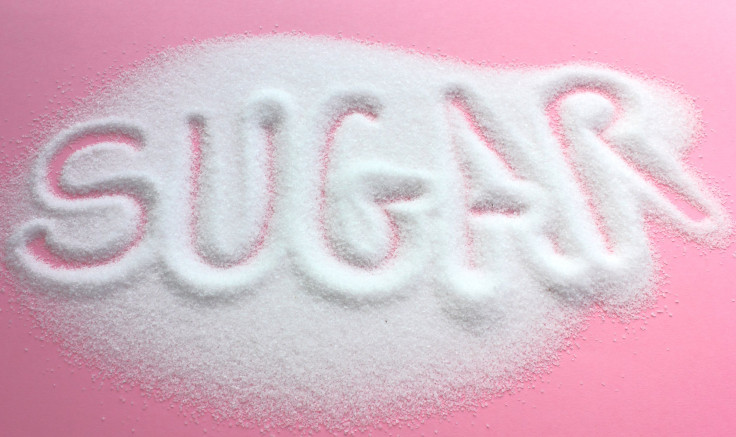How Does Sugar Affect Your Brain? Turns Out In A Very Similar Way To Drugs And Alcohol

Sugar. Just the thought of a sweet snack can make even the most hardcore dieter weak at the knees. The promise of a single fresh-baked chocolate chip cookie can make children eat an entire plate of vegetables or motivate couch potatoes to run that one extra mile. So what exactly does sugar do to our brains that make it so, well addictive?
Hooked From The First Bite
From the first bite sugar sends a message to the brain, activating the its reward system. That’s right; sugar has a similar effect on your brain to hanging out with friends, sex, and even drugs. This reward system is a series of electrical and chemical path systems across several different regions of the brain, Dr. Nicole Avena, a researcher in the department of psychiatry at the University Of Florida College Of Medicine explained in a recent TED talk.
The main chemical involved in this biological reward system is dopamine. In people who experience dependency on drugs, nicotine, and alcohol, the dopamine receptors are sent into overdrive causing the individual to be constantly seek that “high” effect. The end result is addiction. Sugar causes a similar reaction in the brain, although not nearly as extreme as in the case of other addictive substances.
Dopamine
Whenever we eat food dopamine is released in the brain. However after eating the same food time after time, the dopamine levels begin to even out and we no longer find the dish as satisfying as we once did, Avena explained. This is because the human brain evolved to motivate us to eat a wider variety of food. This evolutionary tacit ensures that humans both receive a balanced amount of vitamins and minerals, while also helping us to steer away from dangerous rotting food. Interestingly enough, no matter how much sugar a person consumes, the dopamine levels will never even out enough to motivate the discourage an individual from eating more sugar.
Addictive Elements
Not all doctors will agree that food is addictive, but the pleasure feeling one has after consuming a sugary treat is undeniable. Like all addictive activities, too much of sugar can be a far from a good thing. It may cause loss of control, cravings, and even an increased tolerance for sugar. In sugar-fed mice, absence of the addictive was seen to produce events of binging, craving, and even withdrawal symptoms, Business Insider reported.
The World Health Organization recommends that no more than 10 percent of an individual’s diet should come from sugar. This doesn’t seem to back when you take into perspective that for an average healthy adult this is about 25 grams which looks like 6 teaspoons of sugar a day. When figuring that a can of coke contains 39 grams of sugar, it’s easy to see how we can go overboard on our sugar consumption quite often. Weight gain and its more extreme cousin obesity are some of the most recognizable side effects of diets too high in sugar. Too much of the sweet stuff can also lead to other unpleasant health complications such as high blood pressure, liver damage.
So What Exactly Is Sugar?
In order to best control your sugar intake, it would probably be wise to know what exactly sugar is. Sugar is actually a carbohydrate. The white stuff we add to our tea and coffee is sucrose, a complex sugar comprised of two simpler sugars: fructose and glucose. Foods in the grocery store don’t always clearly label their sugar content so when reviewing nutrition labels it’s important to be aware that words such as glucose, sucrose, lactose, maltose, dextrose, starch, corn syrup, fruit juice, raw sugar, and honey. Sugar is also added to ketchup, yoghurt, and flavored water just to name a few.
What About Natural Sugar?
Sugar does get a bit of a bad reputation sometimes though. It occurs naturally in many important foods such as fruit and milk. But what about the hype concerning natural sugar such as agave and coconut sugar; are they any better for you? Yes,but maybe not as much as you may be lead to believe.
According JJ Virgin, author of The Virgin Diet and The Virgin Diet Cookbook, coconut sugar contains about the same amounts of fructose and glucose as ordinary table sugar. “A small amount of coconut sugar would probably not create problems, but it’s definitely not an ‘unlimited’ sweetener,” explained Virgin to Yahoo News. And agave? “The reality is that it is often heavily processed and contains up to 90% fructose. There is nothing healthy about the agave syrups and agave-sweetened processed foods you find in health food stores,” says Virgin.



























